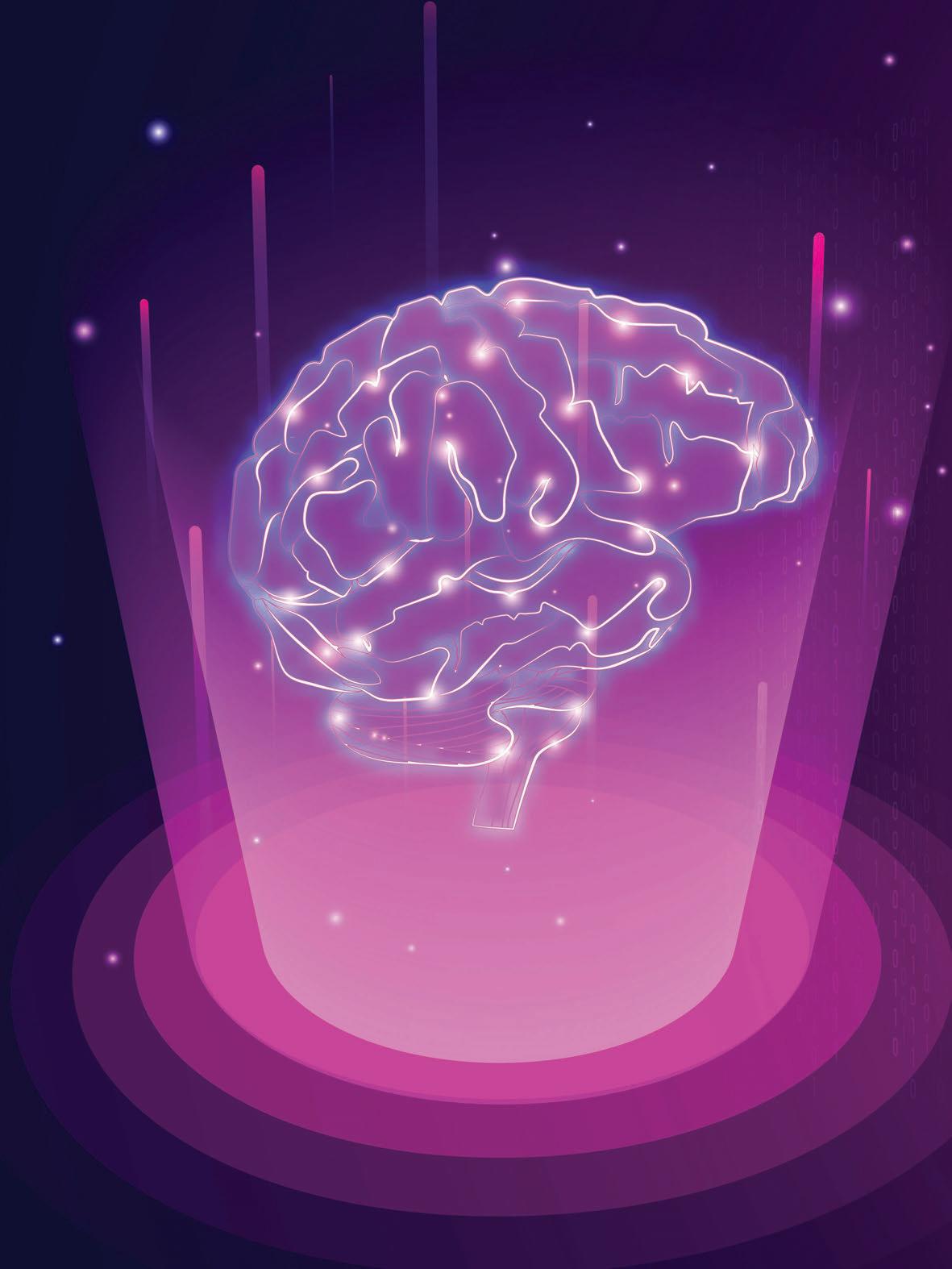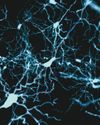
Your brain looks like a pinkish-brown blob of gelatin and may seem just as silent. Don't be fooled by this apparent quietness, though. Around 86 billion nerve cells called neurons form the building blocks of this organ-and they speak. They converse when you're playing, eating, or just sitting still. Some jabber while you sleep, too.
But neurons don't communicate with sound, as you do when you talk. They speak through tiny bursts of electrical energy called action potentials or spikes.
Neurons in the brain send and receive signals using action potentials. It's almost like a language. Neurons in your eyes, ears, and skin produce action potentials in response to lights, sounds, and touch, respectively. And neurons don't just speak to one another. Many relay messages to and from your muscles, telling them whether to contract or relax. Through spikes, neurons in your brain control your whole body, from head to toe.
Coding With One Letter?
All spikes aren't identical. The duration of the signal ranges between one to several hundred milliseconds. (One millisecond equals a thousandth of a second.) Spikes also travel at different speeds. Some spikes plod along. Others whir faster than race cars.
For neurons, though, these differences may not be important. To them, all arriving action potentials may seem like near-identical jolts. It's like they have a language with just one letter, such as an e, instead of a whole alphabet. This is almost like the binary code inside computers, where a signal can only be a I or a 0.
It's easy for programmers to turn words into strings of Is and Os and back again because we invented this code. But decoding the messages of billions of neurons isn't nearly as easy. Could anyone decipher their chitter-chatter?
It's the Number that Counts
この記事は Muse Science Magazine for Kids の September 2023 版に掲載されています。
7 日間の Magzter GOLD 無料トライアルを開始して、何千もの厳選されたプレミアム ストーリー、9,000 以上の雑誌や新聞にアクセスしてください。
すでに購読者です ? サインイン
この記事は Muse Science Magazine for Kids の September 2023 版に掲載されています。
7 日間の Magzter GOLD 無料トライアルを開始して、何千もの厳選されたプレミアム ストーリー、9,000 以上の雑誌や新聞にアクセスしてください。
すでに購読者です? サインイン

A 12-Year-Old Girl's Election Sticker Is a Winner
VOTING IS A FUNDAMENTAL FREEDOM FOR AMERICANS, A MEANS OF DOING ONE'S CIVIC DUTY AND A WAY AN INDIVIDUAL CAN EXPRESS THEIR VOICE. In 1971, the United States lowered its voting age to 18. But that doesn't mean kids and teens under 18 can't participate in elections in various ways.

If everything the human brain does is basically sets of electrical impulses, how exactly does that translate into a state of mind?
You're not the only one asking this question. Every neuroscientist in the world is wondering the exact same thing, says Zach Mainen

EARTH'S TINIEST BUILDERS
THE HIDDEN WORLD OF MICROBES IN THE EARTH'S CRUST

MUMMIES SPEAK
ABOUT MICROBES, MIGRATION, AND MORE

GOING WITH YOUR GUT
HOW DO MICROBES AFFECT OUR HEALTH? LET'S COUNT THE WAYS...

BUG Detective
A burglar sneaks into a house on a quiet street in New York City. He walks through the house, touching countertops and door handles. Finally, he steals a single card from a full deck. Then he leaves.

Little Creatures Among Us THE MANY MICROBES IN OUR DAILY LIVES
When you think you're alone, you're actually not. In the ground, the air, your room, and even your body are Strillions and trillions of creatures so tiny you can't see them.

A Mars Rock Found With Leopard Spots Could Be a Sign of Ancient Life
IN JULY, NASA'S PERSEVERANCE ROVER CAME ACROSS A SPOTTED ROCK IN WHAT WAS ONCE A RIVERBED IN THE JEZERO CRATER ON MARS.

Para Athlete Uses Exoskeleton Suit to Carry the Olympic Torch
In July, a 36-year-old French tennis para athlete, Kevin Piette, got a chance to participate in this summer’s Olympic torch relay without using a wheelchair.

Ancient Egyptians May Have Used a Water System to Lift Stones to Build Pyramid
HOW ANCIENT EGYPTIANS BUILT THE MASSIVE PYRAMIDS IN EGYPT MORE THAN 4,000 YEARS AGO HAS LONG BEEN A TOPIC OF WONDER AND DEBATE.